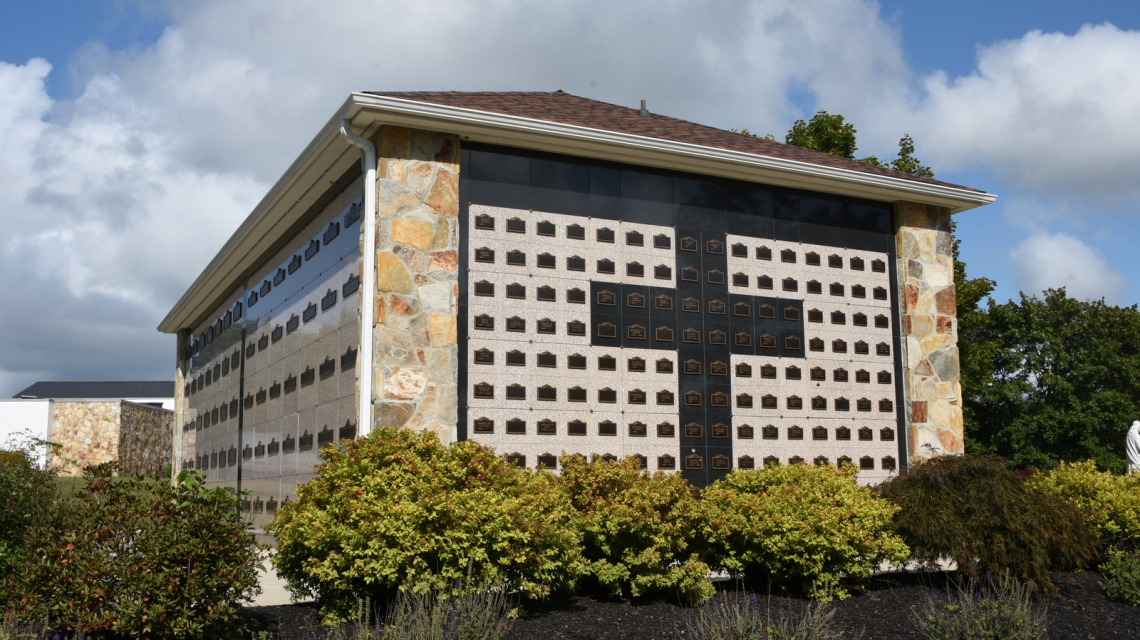Cremation

The practice of cremation is becoming more commonplace in the United States, and Maine is no exception. According to the National Funeral Directors Association, more than half of all Americans who die are now cremated. But is cremation accepted by the Church? The answer is yes but with some important restrictions.
The human body is a temple of the Holy Spirit
As Catholics, we believe that the human body is a temple of the Holy Spirit and that it must always be treated with respect and dignity, both during life and in death. This is based in the belief that we are formed in the image and likeness of God and that, at the end of time, our bodies will rise from the dead, just as Christ did.
“We believe that body and soul will be rejoined at the end of time,” explains Father Jack Dickinson, judicial vicar for the Diocese of Portland. “We believe that, at the end of time when Christ comes again, there will be the general resurrection of the dead, which includes the resurrection of our bodies. Most people have no idea that is actually a Catholic Christian belief, but it is fundamental to our belief in the resurrection that Christ will claim our mortal bodies.”
It was St. Paul who told us, “If the dead are not raised, neither has Christ been raised, and if Christ has not been raised, your faith is vain” (1 Corinthians 15:16-17).
Respect for the body is why the Church, to this day, prefers traditional burial. However, it acknowledges there are very practical reasons for cremation, and the Catechism of the Catholic Church states “The Church permits cremation provided that it does not demonstrate a denial of faith in the resurrection of the body” (CCC 2301).
If the choice has been made to cremate a body, it is recommended that the cremation take place after the funeral liturgy, since “the presence of the human body better expresses the values which the Church affirms in those rites” (Order of Christian Funerals no. 413).
Having the funeral liturgy first more closely connects us with the person who died and for whom we are praying, and it is a recognition that we are not denying the value of the body.
Cremated remains must be treated with respect
Cremated remains must be treated with the same respect as would a non-cremated body. Ashes must not be separated and must be placed in a worthy vessel, such as an urn, and then be buried in a grave or entombed in a mausoleum or columbarium. Ashes must never be scattered on the sea, kept in an urn on the mantel, or turned into jewelry.
“Burying the dead is one of the corporal works of mercy. It is part of our Christian duty. All of us are called to treat each other with this respect and dignity and to pray for each other,” says Shannon Fossett, a canonist for the Diocese of Portland.
Cremation interments are similar to casket burials in that the urn or other suitable container is placed in a protective liner and placed in the ground. Depending on the cemetery, families may purchase a traditional space that would normally be used for a casket and opt to use that space for a cremation vessel. Each space comes with one burial right, the right for one burial to occupy that space. In many instances, however, additional burial rights may be obtained in order to keep families together.
Many cemeteries also have cremation gardens or areas specifically dedicated to cremation interment and inurnment. These include the Pietà niches and the St. Dominic Columbaria at Calvary Cemetery in South Portland; the St. Louis Garden Mausoleum, the chapel mausoleum, and the Garden of the Apostles section of St. Peter Cemetery in Lewiston; and the Sacred Heart niches at St. Joseph Cemetery in Biddeford. St. Joseph also offers in-ground burial of cremated remains in the St. Lambert Urn Garden, the Veterans Urn Garden, and its St. Theresa section.
“The Catholic community is encouraged to place cremated remains within the cemeteries and allow us to remember those that have passed on in a serene place of prayer and reflection. Our cremation options give family and friends the opportunity to visit loved ones in the peaceful surroundings our cemeteries provide,” says Jessica Letendre, director of cemeteries for the diocese.
It is recommended interment take place in a Catholic cemetery because all the ground is consecrated and because of the assurance that prayers will be offered for the deceased.
“It is the sense that this is all blessed ground, and we’re all awaiting the second coming of Jesus together,” says Father Dickinson. “At the end of time, everyone is going to be raised from their graves at the same time.”
All Souls Remembrance Program
For those who may have kept ashes on a mantel and now want to properly inter them, the diocese offers the All Souls Remembrance Program. It will, at no charge, provide a dignified committal service and place the cremated remains in the Remembrance Crypt. If financial concerns are preventing you from considering a traditional burial, please contact your parish to see what options might be available.









